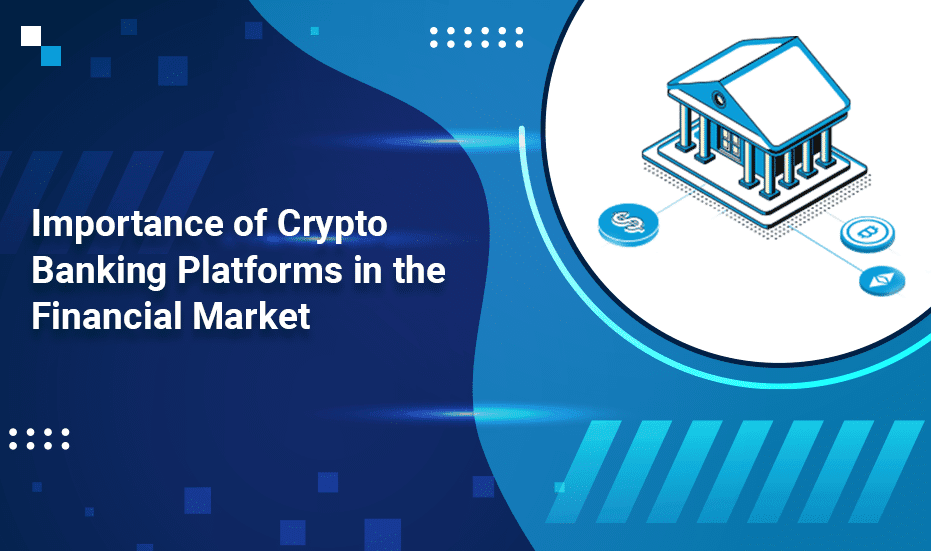
Important Things to Consider when Building your DeFi Crypto Wallet
January 8, 2021
Why Choose White-Label Crypto Derivatives Exchange Development?
January 13, 2021Blockchain has had an exhilarating stint over the past one decade. Regardless of the sector, a swathe of enterprises has steered their products and processes over the decentralized ledger technology. As the industry paces to value at USD 39billion in worth by 2025, it is imperative to acknowledge the digital assets banking; the financial arm of Blockchain applications.
To give a quick run-through, Blockchain engineered platforms allow peer-2-peer and instantaneous transfer of value in the form of digitized assets, without any involvement of central authority. Not to miss, original versions of assets can be transferred, not copies or duplicates, and this has significant potential to resolve the critical flaws in traditional banking. It has encouraged global fintech entities to explore the anticipated efficiency of the digital asset economy.
The Significance of Digital Asset Banking Platform Development
As a result, many start-ups and corporates have already begun exploring digital asset bank development solutions to gain an edge in the highly competitive financial market. In fact, World Economic Forum foresees 10% of global GDP stored on Blockchain by 2027.
In a nutshell, the key objectives driving the bandwagon include –
- Bank the 1.7 billion unbanked people in the world
- Push for mainstream adoption of p2p transactions
- Elevate small scale businesses via direct lending protocols
- Empowers the common investor to participate in different forms of crypto trading.
Considering the soaring acceptance for cryptocurrency-based banking platforms, the new technology will address the issues on more complex business areas, such as fund solutions, tokenization of illiquid assets, derivatives on cryptos and tokens, integrated portfolios, private banking, and wealth management solutions.
Moreover, the market as a whole will continue to grow on the supply side as well as on the demand side.
The most important trends are:
- The regulatory authorities are following the trend and will only accept top-notch operating models supported by professional providers in the future.
- Risk management is still not considered a crucial feature. However, the Bank for International Settlements (BIS) declared it imperative.
- Platforms and open banking also play the main role in the field of digital asset banking, which means that for example the standardization will increase and API banking will continue to grow.
- In the future, there will be further opportunities for white labeling and B2B/B2C business models in digital asset banking, especially in combination with other exponential technologies such as the Internet of Things (IoT), Artificial Intelligence (AI), New mobility solutions, Drones, etc.
Unquestionably, blockchain-based digital financial platforms have caused significant disruption all over the map. At Antier, our experience in developing digital asset banking platforms has helped many enterprises own their financial institutions and thereby overhauling the transactional processes without any regulatory hindrances.
Our suite of products includes full-stack crypto banking solutions, tokenization of digital assets, and a range of trading platforms development. Our skilled team of finance and technical experts provide complete banking development solutions- from guiding on compliance, acquiring a bank license to providing a white label banking ecosystem.
Schedule a free demo of our white label crypto banking development solution or connect with our subject matter to share your business requirements.



